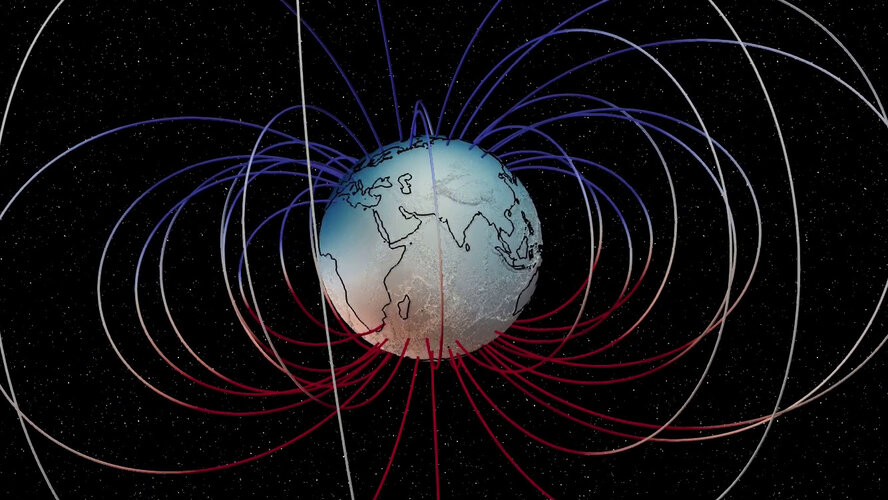Approximately 41 000 years ago, Earth’s magnetic field briefly reversed during what is known as the Laschamp event. During this time, Earth’s magnetic field weakened significantly—dropping to a minimum of 5% of its current strength—which allowed more cosmic rays to reach Earth’s atmosphere.
Scientists at the Technical University of Denmark and the German Research Centre for Geosciences used data from ESA’s Swarm mission, along with other sources, to create a sounded visualisation of the Laschamp event. They mapped the movement of Earth’s magnetic field lines during the event and created a stereo sound version which is what you can hear in the video.
The soundscape was made using recordings of natural noises like wood creaking and rocks falling, blending them into familiar and strange, almost alien-like, sounds. The process of transforming the sounds with data is similar to composing music from a score.
Data from ESA’s Swarm constellation are being used to better understand how Earth’s magnetic field is generated. The satellites measure magnetic signals not only from the core, but also from the mantle, crust, oceans and up to the ionosphere and magnetosphere. These data are crucial for studying phenomena such as geomagnetic reversals and Earth’s internal dynamics.
The sound of Earth’s magnetic field, the first version of the magnetic field sonification produced with Swarm data, was originally played through a 32-speaker system set up in a public square in Copenhagen, with each speaker representing changes in the magnetic field at different places around the world over the past 100 000 years.



 Video:
00:01:20
Video:
00:01:20